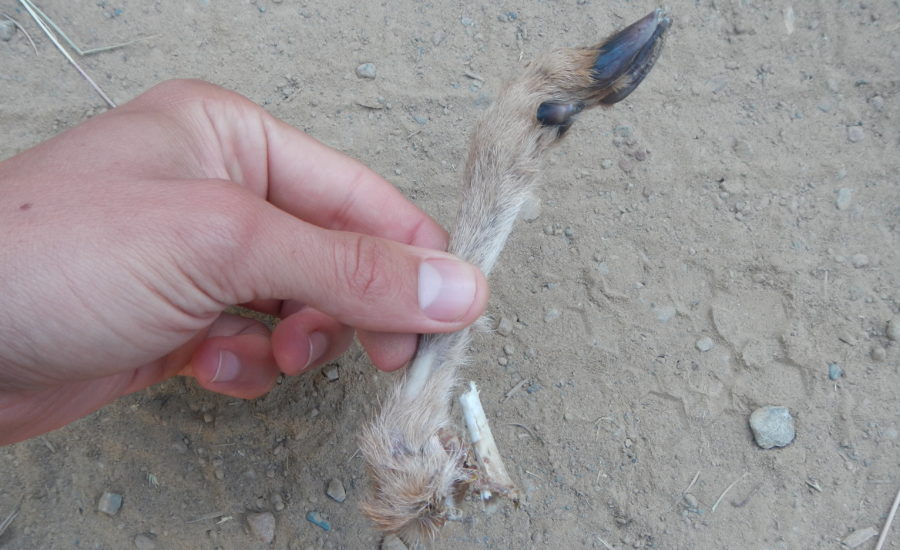Spring and early summer are surely one of the most delightful times of year to be outside. In this vibrant phase of the yearly cycle nature is overflowing with tender new growth, fresh life, and amazing vitality. It is the perfect time of year to enjoy the bountiful blooming of wildflowers, to watch the lazy flight of newly emerged butterflies, and to eat the succulent flesh of babies.
“What did you say!? That is horrible! I would never eat babies.”
Most people will be surprised by one element from that list of spring delights. Some will be disgusted and offended. Nevertheless, I would argue that eating babies is as much a part of the spring season as wildflowers, bird song, and the verdant carpet of green that covers the hills.
Why is it that we romanticize the unfurling of flower petals, the prodigious buzzing of pollinators, and the chorus of frogs while feeling revolted and indignant when we see opportunivores swooping in to eat vulnerable babies? This is one of those instances where many scientifically-minded, and usually objective naturalists feel an uncontrollable urge to step in and “interfere” with the natural processes. The same person who professes a “leave no trace” backcountry ethic and a hands-off conservationist approach to wildlife management suddenly finds themselves chasing a hungry predator away from a fragile baby animal.
Is this just another example of our imposition of arbitrary and misguided ethics onto the natural world? Is this a product of the Disneyfication of nature in our modern Western society? Or is it perhaps a deeper human instinct, an innate and adaptive desire to protect our own babies that is easily triggered by the young of other species? A deeper look at the logic behind our diet and a cross-cultural survey might provide some semblance of an answer.
If you are adamantly anti-baby-eating, I suggest we take a look in your fridge. Do you have any baby broccoli, baby carrots, or baby corn in there? “But that is different,” you might protest, “those are just plants.” What about sprouts, the quintessence of tender babiness, that the health-conscious human might ingest by the thousands in a single meal? You might argue,“Those are still plants. They are not really babies.”
If eating baby plants is morally acceptable because they are more distant from us on the tree of life that might make some kind of sense. We won’t delve into the controversy of whether or not plants have feelings here, nor will we look at baby mushrooms which are phylogenetically more similar to animals like us than they are to plants. Instead, let’s take another look into the fridge of the anti-baby-eater to see if we can find any other ethical contradictions.
What’s that in the cardboard carton in the door? “Those are just, well, uh, you know, eggs…” you respond someone guiltily as if realizing the logical inconsistency mid-sentence. “ But they aren’t really babies yet and, uh, everyone eats them.” If an egg is not the best example of a helpless, tender, succulent, vulnerable, under-developed baby then I’m a mountain gorilla. Yet in our society we scarf chicken eggs in astronomical quantities without thinking twice about their nature.
It is a delicate ethical tight-rope walk that we navigate with egg-eating. We eat eggs by the dozen and incorporate them into more recipes than almost any other ingredient. Yet many people in our society get squeamish if they see a speck of blood in the yoke or think too much about the biological meaning of an egg as they eat their omelette. While we Westerners hard-boil eggs and put the whites in our desserts we are revolted by the mere mention of some of the Asian uses of eggs. The partly developed “balut” eggs prized in the Philippines are particularly difficult for most Westerners to stomach. This embryonic delicacy is but one example that shows the ethical ambiguity of eating eggs and babies when a cross-cultural perspective is taken.
In the case that you argue, “But I don’t eat Balut eggs, that is just weird and wrong!” let me bring up some other examples that are more appealing to the Western palate. As we continue our perusal of the fridge of the anti-baby-eater we might have to look in the freezer. Are those lamb chops? And is that veal? These examples of baby eating require less explanation to the average American and despite growing concerns about the ethic of veal production both of these meats are still commonly consumed in the US.
I think that baby-eating is a perfect example of where the ethics of humans and the ethics of nature converge in an ambiguous gray area that we must examine further. The simple fact that such topics incite powerful and conflicting emotions in most people means they deserve more thought. There is a tendency to do the opposite, to assume that something is either right or wrong, to make an unconscious value judgement based on one’s instinctual reaction or the majority opinion of one’s mother culture. This is a perfect time to slow down and observe our own thought process, our emotional responses, our social programming, and the realities of the natural world. It is at this frayed edge of our comfort zone where deep learning takes place.
